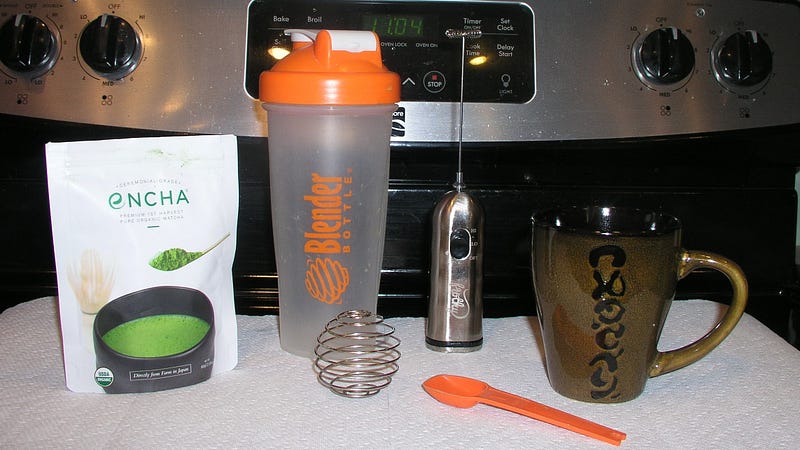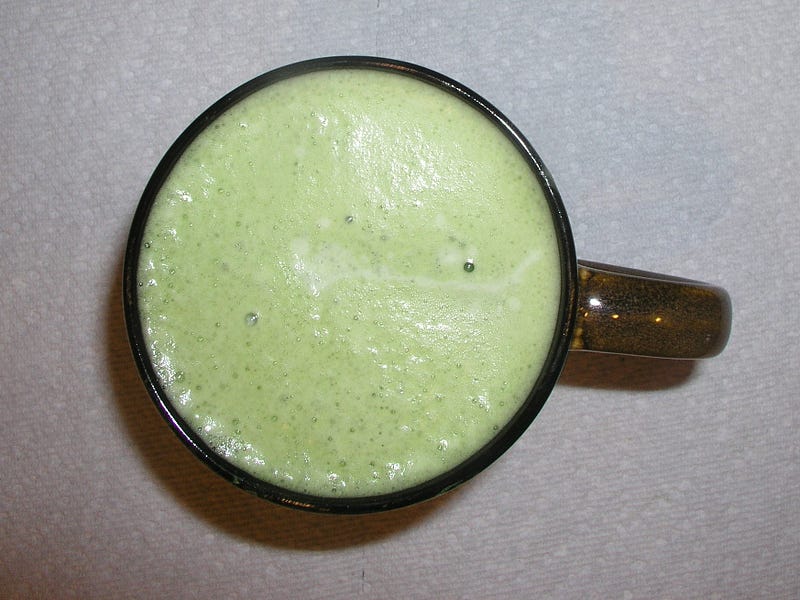The Surprising Health Benefits of Matcha Tea Uncovered
Written on
Chapter 1: Introduction to Matcha Tea
Have you ever come across Matcha tea? If I told you it could be beneficial for your health, would you consider trying it? This unique form of green tea offers a variety of advantages.

Photo by Linda Latt, Author
My journey toward better health began unexpectedly. This past summer, I was diagnosed with cancer, underwent surgery, and received radiation treatment. Now, I have a series of follow-up appointments scheduled for the next five years.
Traditionally, coffee has been my drink of choice. I enjoy it flavored, often mixing caramel and mocha ground coffee from Starbucks, along with honey and two-percent milk.
While I've dabbled in various teas over time, my go-to has been peppermint tea, particularly the Sleepy Time blend, which I used to enjoy nightly. However, I reverted to my coffee routine, consuming a large cup in the morning and another in the late afternoon. I can't envision a time when I’ll stop drinking coffee. Numerous studies highlight its health benefits, including enhanced energy levels and potential protection against neurodegenerative diseases like Alzheimer’s. Given my family history with Alzheimer's, I’m committed to keeping coffee in my diet.
However, my health concerns prompted a reevaluation of my beverage choices. I eliminated sodas and carbonated drinks, aiming to incorporate something healthier, which led me to explore Matcha tea.
Section 1.1: Why Matcha Tea?
My decision to try Matcha stemmed from extensive online research. The more I delved into healthy drink options, the more articles about Matcha appeared. Although I had heard of Matcha before, I didn’t know anyone who consumed it, so I decided to learn more.
Both green tea and Matcha offer significant nutritional benefits. Regular consumption can potentially extend your life expectancy by about 1.26 years. Green tea is rich in catechins, potent antioxidants that combat cancer, reduce inflammation, and enhance heart health. The key catechin in green tea is EGCG (Epigallocatechin), which is also present in Matcha.
Now, here’s the exciting part: Matcha boasts even higher levels of EGCG—ranging from three to one hundred thirty times more, depending on the variety!
According to Robin Foroutan, RDN, an integrative dietitian based in New York City, “Matcha is a supercharged version of green tea.” The production methods differ significantly; while green tea leaves are steamed and dried, Matcha leaves are grown in shade to boost their chlorophyll content and are then ground into a fine powder.
Matcha comes in various grades, primarily divided into Ceremonial and Culinary types. The Culinary grade is further categorized into five levels: premium, cafe, ingredient, kitchen, and classic. For my needs, I chose the Ceremonial grade, made from the youngest leaves, with the stems removed.
Section 1.2: Preparing Matcha
When prepared, this type of Matcha displays a rich green hue and an earthy aroma reminiscent of fresh grass. Initially, I found the taste quite bitter, despite the expectation that it would be naturally sweet.
My first attempt involved adding honey, my preferred sweetener, and two percent milk, similar to my coffee preparation. With more practice, my subsequent servings improved in both texture and flavor.
To prepare my Matcha, I carefully measure one teaspoon, placing it in a shaker with a perforated ball. After filling a cup with water and shaking it vigorously, I incorporate honey and use a frother to blend everything smoothly before heating it in the microwave.
While my method lacks any ceremonial flair, it suits my taste perfectly.
Matcha tea will not replace my coffee, but I plan to continue enjoying it for its health benefits. It's too soon to determine whether this will become a permanent habit, but I have faith in the science behind its advantages.
Chapter 2: The Science of Matcha's Health Benefits
The first video, "Health Benefits of Matcha Green Tea Powder," delves into the numerous advantages of incorporating Matcha into your daily routine, highlighting its nutrient-rich profile and overall wellness benefits.
The second video, "Is Matcha REALLY Good for You? Exploring the Health Benefits of Tea," provides an in-depth look at the various health claims surrounding Matcha and whether they hold up under scrutiny.
The Matcha I opted for, which garnered excellent reviews, is Encha Ceremonial Grade Matcha Green Tea from Uji, Japan, and I also purchased a Cafe Casa Milk Frother from Amazon to enhance my tea experience.

Photo by Linda Latt, Author